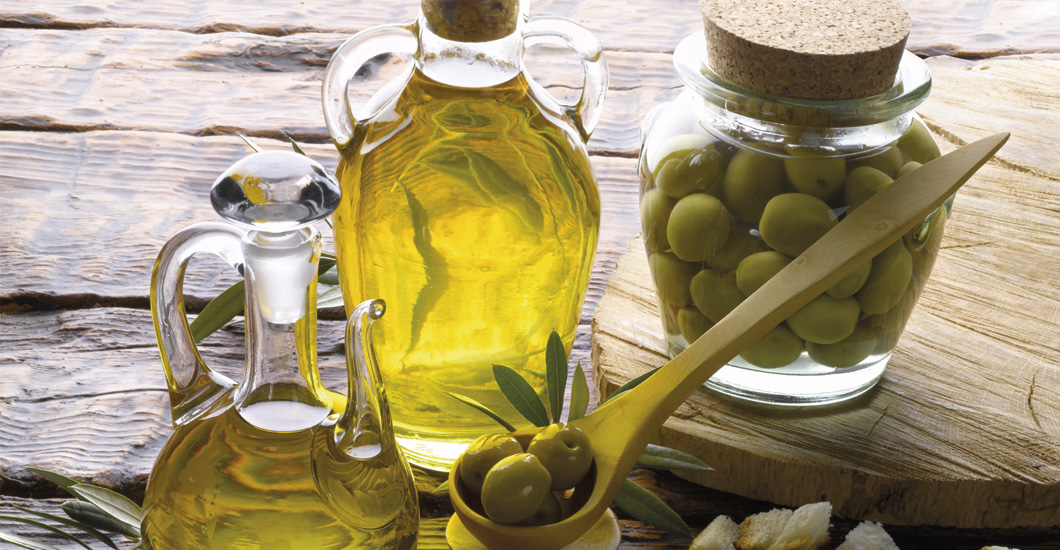Olive oil has an extensive history, and it has never ceased to be cherished and valued.
Since ancient times, the olive tree has been a symbol of prestige and honor. In Greece, five thousand years before the turn of the first millennium, athletes participating in the Olympic games did not compete for a gold, silver, or bronze medal; instead, they strove to see their heads adorned with a crown made of olive branches. Today the world's most famous chefs use it in all their recipes.
Although olive-growing began about 8,000 years ago in Syria and Crete, with the Phoenicians later being commissioned to plant olive trees throughout Europe, all the health benefits of olive oil were only revealed in the past century, when a group of curious scientists realized that the inhabitants of the Mediterranean basin—Spain, Italy, France, Greece, and Portugal—experienced fewer heart attacks and were dying less from cancer than people in other regions.
It was then, and perhaps in the pursuit of eternal youth that has long infatuated humankind, the scientists realized that it wasn't that the inhabitants of the Mediterranean basin were gifted or had a unique genetic makeup, but rather that they had a diet rich in monounsaturated fatty acids—a result coming largely from olive oil. These people also consumed more red wine, fish, vegetables, and dried fruits. At this point, people began to talk about the famous Mediterranean diet.
They began to appreciate this yellow, soft, and sticky liquid that is at times a little bitter and other times sweet, that has a flavor that depends on the degree of the olive's ripeness and the processes used to extract the oil.
Extra virgin is better
The main virtue of olive oil is its high content of monounsaturated fatty acids, which has been proclaimed as a great heart health protector. But, this oil is also rich in other polyunsaturated fatty acids (linoleic and palmitic acids, among others), antioxidants, vitamin E, and polyphenols, which help fight free radicals (unstable molecules that attack other important molecules, like DNA), explains Dr. Luisa Fernanda Bohorquez, professor at National University and diabetologist , with a masters in clinical biochemistry.
Frequent consumption of olive oil decreases blood pressure, lowers bad cholesterol (LDL), increases good cholesterol (HDL), improves intestinal functions, optimizes brain functions, regenerates skin tissue, and makes the skin smoother.
Its benefits to the skin explain why the Romans and the Greeks used it as a cosmetic and an ointment to treat skin problems.
However, it is important to buy high-quality olive oil, which depends on multiple factors, with the following three being the most important: the quality of the olive, the process used to extract the oil, and how it is stored. Broadly speaking, the process begins when the olives are ground and pounded to separate the pulp. Then, it is loaded into machines that spin quickly and decant the oil by its density.
The oil obtained from this centrifuge is of the highest quality and is the most expensive. The procedure is done at room temperature, which they call "cold," which allows it to keep all of its properties. This olive oil is known as extra virgin. The process is repeated with the residue left in the machine, which produces a lower quality oil, known as virgin. In doing so, they continue to get recessed oils with each phase.
Olive oil is more resistant to oxidation than many seed oils when heated; it can handle more than 392 degrees Fahrenheit without significant changes in the fatty acids. With this in mind, it should not be reheated, like other oils, to avoid losing its nutritional value, and it could become harmful by releasing free radicals. Another issue is that at high temperatures, the flavor it adds to sautéed food is the same as that of oils like sunflower, corn, and soy, which are much lower in price than olive oil. The issue of price is not insignificant─olive oil is two to three times the price of other oils. It is a good idea to always keep a bottle at home, and use it uncooked in salads and special preparations, and for frying and other preparations that involve heating the oil, use the more economic options.
Remember to not use too much. Bon appetit!
Make your table shine!
To obtain all the benefits of olive oil keep in mind the following general considerations:
- Consume three to four teaspoons of olive oil per day to give your body the essential fatty acids it requires, but don't forget that each teaspoon has 45 calories. Only cook with olive oil that is suitable for cooking. It should have that information on its label. Other oils (regardless of whether or not they are extra virgin) should be used uncooked for salads and garnishes.
- Store olive oil in a cool place, away from light, and closed tightly, so that it doesn't come into contact with air.
- The oil should preferably be packed in a bottle made of dark glass. Expert tasters point out that plastic and metal are not the most appropriate for preserving olive oil, while others claim that this is nothing more than a myth.
- The oil must have a clean, transparent, and liquid appearance. If it is thick, dark, or cloudy, it is best to not consume it.
- More than price, what counts is the quality. The mild bitterness and spiciness are characteristic of oils obtained from the best olives.



